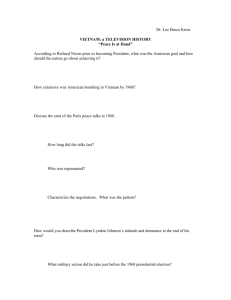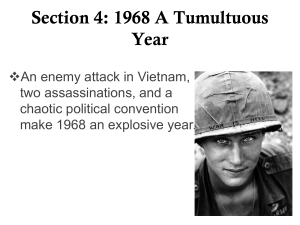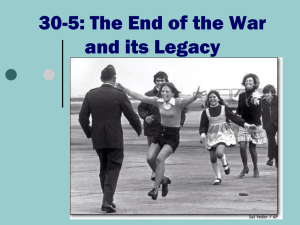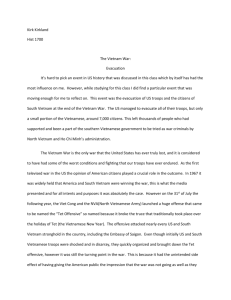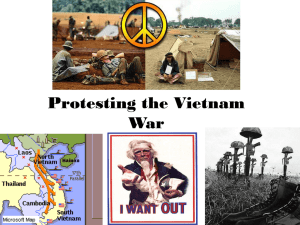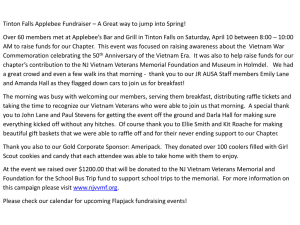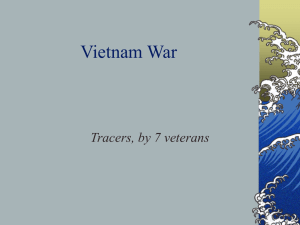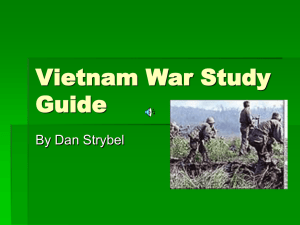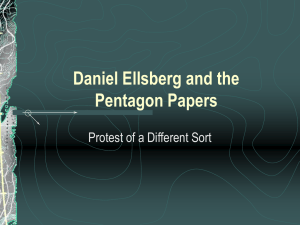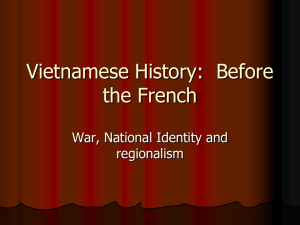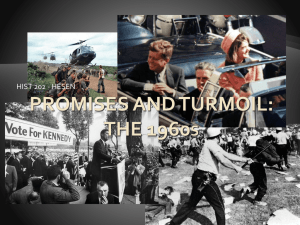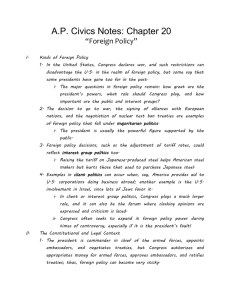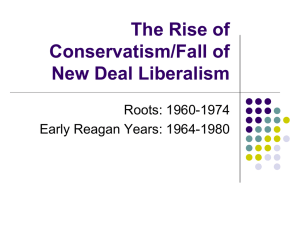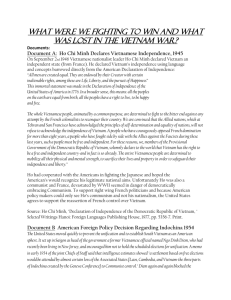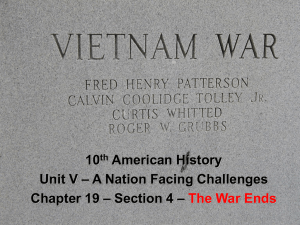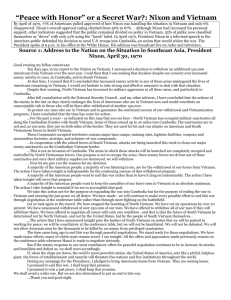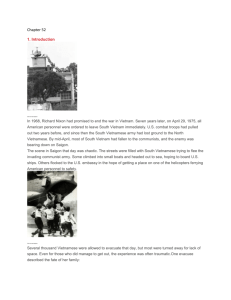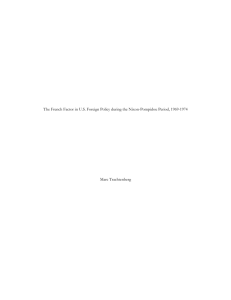AMH Chapter 19 Section 3
advertisement
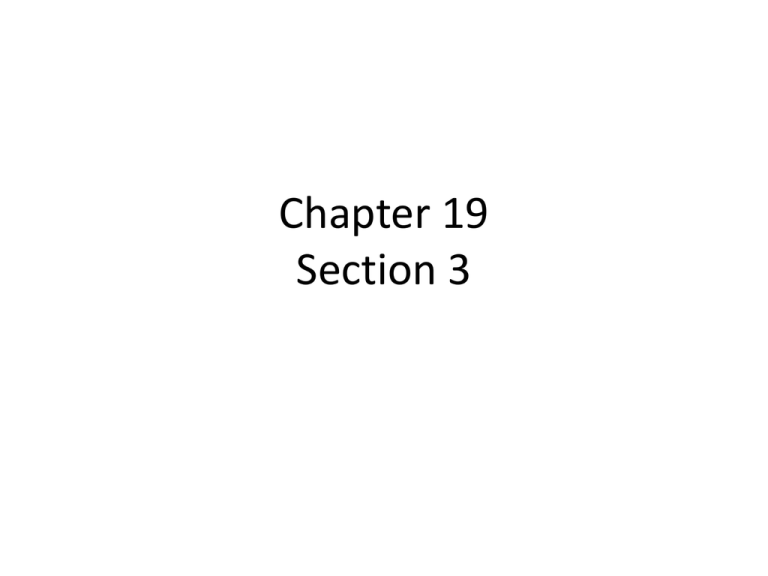
Chapter 19 Section 3 Henry Kissinger • As his first step toward ending the war, Nixon appointed Henry Kissinger as special assistant for national security affairs. • Kissinger started a policy called linkage, in which the United States tried to persuade the Soviet Union and China to reduce aid to North Vietnam. Vietnamization • Kissinger also began talks with a North Vietnamese negotiator. • Nixon set up a plan called Vietnamization, which called for a gradual withdrawal of American troops. • He still kept some troops in Vietnam to preserve America’s strength during negotiations. My Lai Massacre • In 1968 an American platoon massacred unarmed South Vietnamese in the hamlet of My Lai. • As the "search and destroy" mission unfolded, it soon degenerated into the massacre of over 300 apparently unarmed civilians including women, children, and the elderly. Invading Cambodia • In April 1970 Nixon announced that American troops had invaded Cambodia to destroy Vietcong bases there. • Members of Congress were upset with the president for not notifying them of this plan and repealed the Gulf of Tonkin Resolution. 4 Dead in Ohio • This invasion set off a wave of protests such as the one at Kent State University in Ohio, where National Guard soldiers killed four students. Ending the War • By 1971 most Americans wanted to end the war. • In October 1972 Kissinger announced that peace was near. • Nixon won the 1972 election. Soon after, peace talks broke down. Pentagon Papers • The publication of the Pentagon Papers showed how the various administrations had tried to convince Congress, the press, and the public that the situation in Vietnam was better than it really was. Christmas Bombings & Withdraw • To force North Vietnam to resume negotiations, the Nixon administration began the “Christmas bombings” , which were the most destructive air raids of the war. • In January 1973 an agreement was signed to end the war. – The United States began to withdraw. Nixon Resigns • President Nixon resigned under pressure following the Watergate scandal, and Congress refused funds to aid the South Vietnamese. Saigon Falls • In March 1975 North Vietnam invaded South Vietnam and on April 30, 1975, the North Vietnamese captured Saigon, South Vietnam's capital city. Putting the war behind • Americans hoped to put the Vietnam War behind them. • Still, the war had lasting effects on the United States. – – – – Vietnam had cost more than $170 billion. It resulted in the deaths of about 58,000 Americans. More than 300,000 were injured. About one million North and South Vietnamese soldiers died. – Countless Vietnamese civilians lost their lives as well. Psychological Impact • Some American veterans found it hard to escape the war's psychological impact because their sacrifices went unrecognized. • Many Americans considered Vietnam a defeat. – They wanted to forget the war. • As a result, the sacrifices made by many veterans often went again unrecognized. POW/MIA • There were few welcomehome parades for American soldiers. • The war continued for many American families whose relatives were prisoners of war (POWs) or missing in action (MIA). • In spite of many official investigations, some families continued to believe that the government lied about its POW/MIA policies. Vietnam Veterans Memorial • In 1982 the Vietnam Veterans Memorial in Washington, D.C., was dedicated to help Americans come to terms with the war. War Powers Act • In 1973 Congress passed the War Powers Act. • The Act attempted to set limits on the power of the president. • The law required the president to inform Congress of any commitment of troops within 48 hours. • It also required the president to withdraw troops in 60 to 90 days unless Congress approved the troop commitment. • No president has ever recognized this law. However, presidents do ask Congress for authorization before sending troops into combat. Cynical • After the Vietnam War, many Americans became more reluctant to involve the United States in the affairs of other nations. • The Vietnam War also made Americans more cynical about their government. • Many believed that the government had misled them.
![vietnam[1].](http://s2.studylib.net/store/data/005329784_1-42b2e9fc4f7c73463c31fd4de82c4fa3-300x300.png)
